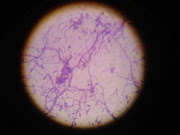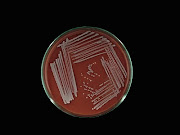COMPARATIVE
STUDY OF PARASITIC INFECTIONS IN PIG POPULATION FROM DIFFERENT CLIMATIC
ECOZONES OF NEPAL AND ITS IMPACT ON PRODUCTIVITY AND HUMAN HEALTH
(Selected for USAID Grant)
PRINCIPAL
INVESTIGATOR
Mr. Upendra Thapa
Shrestha, M.Sc. Microbiology (Environment and Public Health
Microbiology)
·
Faculty,
Kantipur College of Medical Science (KCMS), affiliated to Tribhuvan University,
Sitapaila, Kathmandu.
·
Research
Assistant (Deputy Director), Research Laboratory for Biotechnology and
Biochemistry; RLABB, (Contact address: Email:upendrats@gmail.com; Mobile:
9841431476)
CO-INVESTIGATORS
1.
Mr.
Nabaraj Adhikari, M.Sc.
Microbiology (Medical)
·
Coordinator,
Kantipur College of Medical Science (KCMS) affiliated to Tribhuvan University,
Sitapaila, Kathmandu
2.
Mr.
Jivan Shakya, M.Sc.
Microbiology (Medical)
·
Research
Assistant, Centre for Molecular Dynamics-Nepal (CMDN)
ABSTRACT
Pig
production in Nepal is one of the rapidly growing livestock enterprises both in
tropical and sub-tropical regions, contributing the second major source of
meat. The research will therefore focus
on the prevalence of parasites in pig at two different climatic ecozones and
also study its impacts on productivity and human health. Regarding research
design, subtropical (Kathmandu valley) and tropical (Nawalparasi and
Biratnagar) regions will be selected as two different sampling sites and
parasites that affect both pig and farmers will be studied. One hundred and
fifty stool samples and 150 blood samples of pigs will be collected from each sampling
site. Simultaneously, 50 stool samples from each region will be collected from
pig farmers of same study group. All climatic conditions including temperature,
humidity, wind velocity etc will be recorded throughout the research period
with the help of meteorologist. All stool samples will be preserved in formalin
and transported to KCMS for further study. The pig stool samples will be
observed for intestinal parasites (Giardia duodenalis, Ascaris suum,
Trichuris suis, Balatidium coli and Strongyloides spp.). The
blood samples will be processed to harvest the serum and will be transported to
KCMS to detect antibodies against Taenia solium and Toxoplasma gondii
by serodiagnosis method. The parasitic infections will be studied among the pig
farmers of same study group. The prevalence of parasites will be determined in
both pig population and farmers. The data will be statistically analyzed using
chi square test. Finally, the study will describe the interrelationship between
climate change, its effects on livestock production and human health.






















0 comments:
Post a Comment